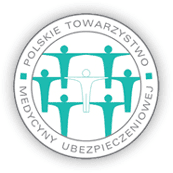


Celem Polskiego Towarzystwa Medycyny Ubezpieczeniowej jest rozpowszechnianie międzynarodowych i krajowych osiągnięć medycyny ubezpieczeniowej, wspieranie wykorzystywania tych osiągnięć w praktyce zawodowej, a także przyczynianie się do utrzymania wysokiego prestiżu zawodowego lekarza medycyny ubezpieczeniowej, przy jednoczesnym dbaniu o zachowanie i przestrzeganie zasad etyki zawodowej.
Tabela PTMU |